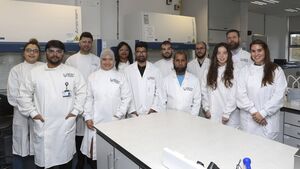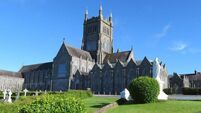SETU reaching new heights with EVEREST

SETU’s Ocular Therapeutics Research Group are excited to start work on the EVEREST project.
South East Technological University (SETU) are reaching new heights with their involvement in an ambitious foray into biomedical research.
The EVEREST project, headed by University College Dublin, is a major collaboration of 21 institutions from 11 countries, which aims to harness the power of extracellular vesicles (EVs) to transform biomedical research.
Extracellular vesicles are small, cell-derived particles that serve as messengers between cells, carrying proteins, lipids, and nucleic acids necessary for intercellular communication.
The project intends to research and isolate these cells in order to improve their potential for non-invasive diagnostics and personalised treatments. Success in this endeavour could go some way into treating
complex diseases such as cancer and cardiovascular conditions.
The work is set to begin in January 2025 and is buoyed by a €1.3 million budget funded through the Marie SkÅodowska-Curie Actions (MSCA) programme under Horizon Europe. Horizon Europe is an EU scientific research initiative.
Vice President for Research, Innovation and Impact at SETU Professor Marie Claire Van Hout said: "The EVEREST project exemplifies SETU’s commitment to advancing impactful research that can improve lives globally. Through collaboration with leading institutions and industry partners, we are contributing to innovative biomedical solutions that hold the potential to change the landscape of diagnostics and treatment."
She added: "This is an exciting opportunity to showcase SETU’s research capacity on an international stage."
Lead of SETU’s Ocular Therapeutics Research Group Dr Laurence Fitzhenry will be contributing to the project.
Dr Fitzhenry said: "EVEREST provides a platform for researchers to develop valuable scientific skills while actively advancing transformative treatment options for those affected by challenging diseases. Our team is looking forward to expanding our expertise and collaborating with a consortium that spans multiple disciplines and industries.”
The EVEREST consortium brings together numerous partners, both academic and non-academic. Partners include University College Dublin, Trinity College Dublin, and Queen’s University Belfast, among others across Europe. Industry partners include SiriusXT, Bioreperia, and Fox Biosystems.
Leading the project are Prof Breandan Kennedy and Dr Yolanda Alvarez, who have great experience from leading European projects like CRYSTAL3 and 3D-NEO-NET. The projects concentrated on complex diseases.






